Need help now?
I found a cat that has been poisoned/hit by a car/attacked by dogs.
If it is out of hours and your own vet is closed, try:
Pikermi 24-hr Veterinary Clinic: tel 210 603 80223
Paiania Attica Veterinary Hospital: tel 210 664 0552
Gerakas 24-hr Veterinary Clinic: tel 211 7005677
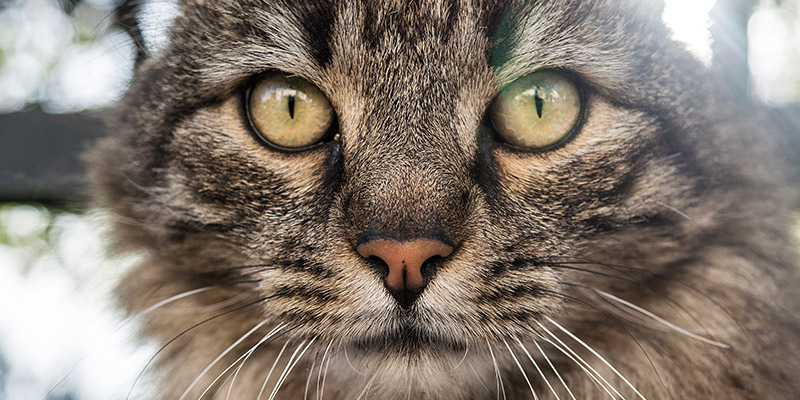
I need an animal ambulance.
The Hellenic Animal Welfare Society, tel 210 602 0202, is the only organisation with an animal ambulance – try calling them, but because they tend only to be active in areas where they are working with the municipality, you are usually better off simply getting the animal to the vet yourself, if at all possible.
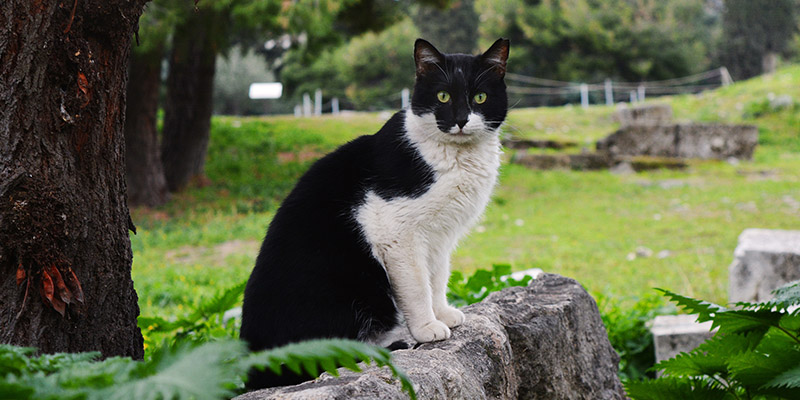
I need information on municipal neutering programmes.
Ring your local municipality.
Athens Municipality (neutering programmes for stray dogs and cats): tel 210 323 9201-2
Hellenic Animal Welfare Society (neutering programmes around Athens): tel 210 602 0202
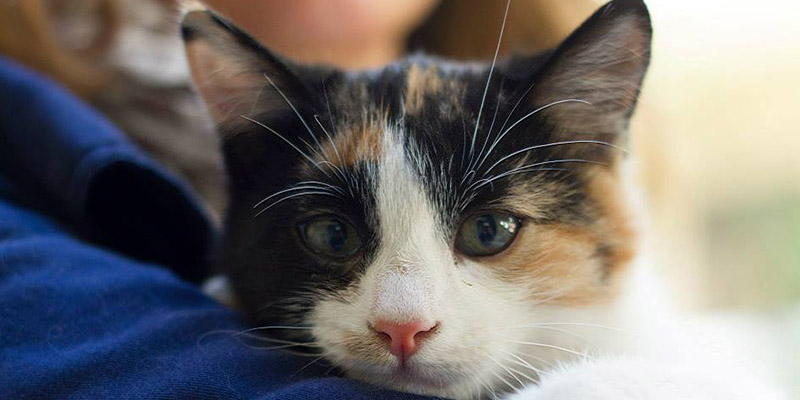
I need advice on neutering my cat or a stray cat.
Check out our info in FAQs and Neuter now or email us at ninelivesgreece@gmail.com
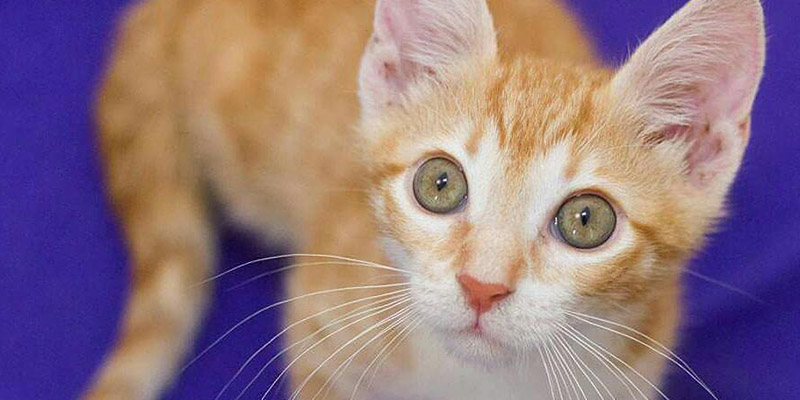
My neighbours are threatening to poison my cats
File a report at your local police station. Poisoning companion animals is a criminal act under Greek law.
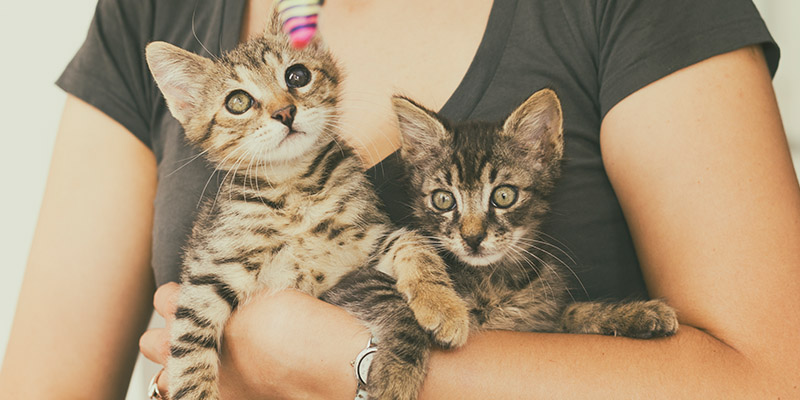
I need a trap to catch a feral cat for neutering.
We can lend you a trap; email us at ninelivesgreece@gmail.com
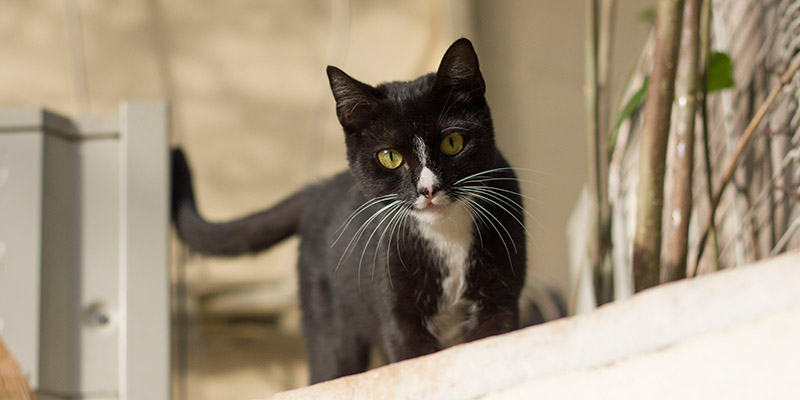
I need a reasonably-priced vet to neuter stray cats.
If you need advice or information on this topic, please email us at ninelivesgreece@gmail.com[
I have found a litter of stray kittens.
If the kittens are with their mother and are in a place where they are safe from cars, dogs and poisoners, leave them where they are. Send out emails to your friends and contacts, with photos and descriptions of the kittens, to tempt potential adopters.
If the kittens’ mother is not with them, and/or they are in a dangerous spot, gather them up in a box or cage and try to find a safe place where they can stay (at your vet, in a room of your house, in a foster home) until they find permanent homes. You are more than welcome to post your ad on our Nine Lives Adoptions page.
Unfortunately, we do not have an office or cattery where we can look after cats or kittens; even if we did, sadly the sheer numbers of stray and abandoned cats mean that it would be impossible to host them all. However, we try our best, given our very limited means.
FAQs
Cats are clever and (rightfully) wary of surprises, particularly big metal ones that suddenly appear in their territory and clang shut with a scary bang. However, cats are also curious – they like to investigate new things – and most of them just cannot resist a bite of tender tuna or a tin of Gourmet mousse.
Put some irresistible food right at the very end of the trap, and a morsel halfway down to lure the cat in, move away so that you are within eyesight of the trap and ready to rush forward and cover it with a towel when the cat is inside (being covered helps the cat to calm down after the shock of being trapped), but not so close as to make the cat feel uneasy. Then just sit and watch and wait. You need a LOT of patience. It could take hours. You may need to return every day for a week. Or more. You may trap all the other cats in the neighbourhood and have to release them (take them to be neutered too, while you’re at it, if you can!). But eventually, you will successfully trap the cat you want.
We have several traps that we loan out to good people like you who try to help and take responsibility for stray cats. The only issue is, because our traps are in such demand, we might not always have one available right away. If you can tell us the area where you live, work or need the trap, we will direct you to the nearest place where you can borrow a trap from and be shown how it works.
Please treat the trap with care, never leave it unattended, and return it as soon as you have finished with it, clean and in full working order. They are costly, we have to order them from overseas, and they are invaluable to our work.
As a small group of volunteers with no premises, shelter or office, our emphasis is on neutering stray cats in order to reduce the massive numbers of unwanted kittens being born. Unfortunately, we simply do are not in the position to take in kittens or cats.
If the kitten/kittens are with their mother, we can only hope that she will be able to take care of them, and we can help you to get the mother cat spayed when the kittens are weaned. We suggest that you take photos of the kittens and make adverts, circulate them among your friends and contacts, and we will circulate them too, to try to find responsible homes.
If the kitten or kittens obviously do not have a mother and have been abandoned, if you are unable to take them in yourself or find friends to do so, we recommend taking them to a veterinarian for temporary shelter or contacting other groups with more facilities than we have, until good permanent homes can be found.
Wonderful! Thank you for offering a stray kitty in need a loving home! We always know of many, many cats and kittens rescued from abject circumstances or near-death situations who need caring, permanent homes; some are in our own homes or foster homes or colonies we take care of, but we are also sent numerous ads by other people and groups who have found cats or kittens that need homes. So we have a multitude for you to choose from to find the best match for your home and living situation. You can find details of many of the cats and kittens currently looking for homes on our website (Adoptions page) and Facebook pages, but we can also email you a fuller, more up-to-date list, or details on specific cats or kittens.
We always like to talk to you to get a full picture of your needs and expectations concerning a kitty, and to discuss with you about important issues like neutering, holiday arrangements and safe balconies.
We bring the cat or kitten to you, in most cases, so as to do a home visit and check at the same time, and to be on scene to help with settling the kitty into its new home. We also ask you to sign an adoption form, verifying that you will take good care of the cat, that you will get it neutered when old enough (if not already done) and that, if for some reason you are no longer able to keep the cat, you contact us immediately so that together we can make a responsible plan for the cat’s future.
First of all, thank you for considering this generous action to save a street cat’s life and give it a whole new, wonderful, happy life with you in your home abroad. The fact that you are thinking of this means that you will already have (we hope!) established that you are ready to give a responsible, caring home to a cat until the end of its days; that you have thought how your existing pets (if you have any) will take to the idea of a newcomer; that you have planned how to settle in and integrate the cat after its traumatic journey, especially given that this may well be a cat that has never lived inside a house before and may need weeks – even months – to adapt to the new circumstances.
The actual travel arrangements are relatively uncomplicated and may not prove as expensive as you might fear. (Unless you want to bring the cat to Australia, in which case, sadly, the import rules and expenses are a huge disincentive to all but the most devoted of animal-lovers.)
Europe: You need to take the cat to a vet to have a microchip inserted, be vaccinated against rabies, treated for parasites (internal and external) and have an EU Pet Passport filled in. The cat can travel 21 days after the rabies vaccination and microchip (which must have been done before or on the same day as the vaccine). The anti-rabies vaccine and microchip cost from 50 euros upwards, depending on the vet’s price list. You will also need to get the cat vaccinated against the regular feline diseases (Fel-o-Vax IV). Get in contact with airlines to find the best option to take you and the cat home, and book yourselves onto a flight together. If the cat weighs less than 6kg together with its carrier cage (the fabric ones weigh around 1kg, plastic ones are heavier), the cat can travel in the cabin with you, which is less traumatic than travelling in the luggage hold. Different airlines have different cage size requirements, and different pricing systems, but usually the cat’s ticket will be in the region of 100 euros. Put absorbent material in the cat’s carrier cage (incontinence pads are excellent) and carry a spare, and it can be very helpful to spray the cage with Feliway feline pheromone travel spray and/or Valerian drops, as a natural anxiety-reliever.
UK: As of January 1, 2012, the UK has discarded its 6-month pre-entry quarantine and blood test requirements, and come into line with the rest of Europe. The direct transport options for bringing a cat from Greece to the UK are still somewhat limited, though, and pricey. We recommend Animal Couriers (www.animalcouriers.com) who provide an experienced and caring transport service across Europe for your beloved pet. Or, if you can, we suggest flying the cat in the cabin with you to Paris or Brussels, and then continuing by train/ferry across to the UK. If you can ask a friend to come and meet you by car at Paris or Brussels airport, even better!
US/Canada: Bringing a cat with you to northern America is actually quite simple. All the cat needs is an anti-rabies vaccination, a microchip, a health certificate from a vet and, in some cases (the vet will advise you on this) an export licence from the Greek Ministry of Agriculture Veterinary Department. It’s usually good to ask the vet to fill in a pet passport for the cat too, although it’s extra to requirements. You will also need to get in touch with your airline asap to let them know that you are travelling with a cat and ask the requirements, including carrier size, and book the cat into the cabin with you. Some airlines don’t take animals. The cost is usually around 100-150 euros for the cat’s ‘ticket’ to travel. And the anti-rabies vaccine and microchip cost from 50 euros upwards, depending on the vet’s price list.
See the response above about adopting a cat from Greece. It may well be much easier and more affordable than you think. It is extremely hard if not impossible to find a good home for an adult cat here, and even if a home is found it is a huge change and an enormous, sometimes insurmountable, shock for your cat.
If you are not initially able to take your cat with you because you need to sort out your living arrangements abroad, or will be moving around before settling, the most humane and reasonable option is to arrange for your cat to stay at a boarding cattery in Greece or in the country of your destination until you are ready. We can help with recommendations for catteries, which charge a small daily fee. There are no cat shelters with space to take in extra cats in Greece, even if your conscience allowed you to abandon your cat to such a facility, as well as overburdening the charity and adding to the already incalculable number of unwanted cats in this country.
NO. Is this what your gynaecologist has told you? If so, perhaps you need to get rid of the gynaecologist for scaremongering without giving you the correct medical facts. If you need to talk to a more informed gynaecologist, and to a veterinarian, we can give you contact details. But in a nutshell:
1) There has never been a single proven case of prenatal toxoplasmosis transmitted to a human by a cat.
2) Most human beings who eat meat have already been exposed to the toxoplasmosis parasite (symptoms are similar to a mild cold), so you can test yourself. If you’ve already had it, you are not in danger.
3) Test your cat. The majority of cats, if they live indoors and do not hunt prey or consume raw meat, do not carry the toxoplasmosis parasite.
4) The most common cause of toxoplasmosis infection is through eating poorly cooked meat or salad that has not been washed carefully.
For peace of mind, pregnant women and mums are advised to do the following:
- Use care when handling raw meat (or don’t handle it at all, even better).
- Cook any meat for you or your cat thoroughly.
- Wear household gloves when changing cat-litter (or, better still, ask your partner to take over litter duties during your pregnancy).
- Use disinfectant to clean the litter tray and surrounding area.
- Change the cat-litter often.
- Keep children’s sandpits covered when not in use.
- Wear gardening gloves when working in the garden.
Thank you for taking these kittens in and giving them a chance. We lack both the facilities and the manpower to take them in, but we can help by putting the word out.
Newborn kittens are extremely vulnerable and have a low survival rate away from their mother. So your best bet would be to find a nursing cat to pass them on to. Please see the section below for a list of facebook pages on which you can advertise. You are more than welcome to post on our Nine Lives Adoptions page.
Hand-rearing kittens, should you decide to undertake the task yourself, is a full-time job, but also an extremely rewarding experience. You will need to bottle-feed your kittens every few hours (even at night!) keep them warm and help them eliminate. Nowadays, you can find excellent resources on the web in both English and Greek:
http://www.fabcats.org/owners/kittens/handrearing.html
http://www.messybeast.com/handrear.htm
Some emergency tips for that first night:
Chances are that you found some kittens in a bin late at night; everything is closed and you are completely bewildered. Don’t panic! Here’s what you need to take care of your kittens:
- Condensed milk, diluted
- A 5ml syringe from a pharmacy (needle removed)
- A hot water bottle
- A large cardboard box or similar
- Towels, bedding
- Soft tissue paper or cotton
Ideally, you should feed your kittens a kitten-only formula milk such as Ormilac (caution: Whiskas cat milk is a treat and NOT suitable for kittens!) but plain old condensed milk will do for one night. Thinly dilute it and heat it in a double boiler until lukewarm. You can test it on your palm to see if the temperature is tolerable.
Hold the kitten upright or on its tummy (never on its back) to feed it. The amount of food a kitten needs will depend on its weight, but for the moment let them have as much as they want. You’ll know they’ve had enough, when they turn their faces away from the syringe.
Kittens with closed eyes need to be fed every 2-3 hours, including at night; those with open eyes, every 3-4 hours. Sterilize the feeding utensils regularly as you would do with a human baby.
CAUTION: NEVER feed a cold kitten. Newborn kittens cannot regulate their body temperature and can develop hypothermia when left out in the cold. A healthy kitten should be lively and feel pleasantly warm in your palm. If your kitten is cold and listless, wrap it in a towel and place it on a hot-water bottle, until its temperature returns to normal.
Very young kittens need help eliminating. You can help them by gently rubbing their genital area with some soft tissue paper or cotton. Do this before and after feeding. Contrary to popular perception, kittens need to pass stool at least once a day.
Place your kittens in a large cardboard box lined with bedding and give them old jumpers and a hot-water bottle to keep them warm. Make sure the hot-water bottle is wrapped in a towel or they might crawl on it and scald themselves. Newborn kittens have to be kept warm at all times, even in the summer, so make sure you refill the bottle with fresh hot water every few hours.
Congratulations! You now have a bunch of warm, fed and happy kittens! Read the linked articles for more information on how to take care of them and good luck!
Have you been properly tested for allergies? The cat might seem like the obvious culprit, but the truth is that the only way to get a definitive answer as to what triggers your symptoms is to do a scratch test. Given that allergies almost always come in groups (i.e. there are usually several things an individual is allergic to), we recommend for your own sake that you get tested as soon as possible. But even if it comes out positive, this doesn’t mean you have to let your pet go.
Your doctor will almost certainly prescribe some antihistamine medicine. Apart from that, there are several other things you can do to make your life easier. As the offending allergen is actually protein particles secreted through your cat’s saliva onto its fur, what you essentially need to do is minimize the effects of shedding and keep the air in your home clean and fresh, as stale air and dust tend to exacerbate allergy symptoms. So you will need to make sure that your cat is brushed at least once a day (try running a damp towel through its fur when finished to pick up loose hair); keep it out of your sleeping area or any other area you spend a lot of time in, such as a home office; vacuum sofas, carpets and other surfaces often (there are actually extra-powerful vacuums directed specifically at pet owners); and finally, air your home regularly and avoid smoking indoors to keep the air clean.
Cat allergies are pretty easy to deal with; it is estimated that over 30% of allergy sufferers in the US actually share their household with one or more cats. However, you should know that there are various allergy treatments available, such as desensitization. Discuss your options with your doctor.
Although this situation can be daunting, the single most important thing that you can do is not to allow yourself to be intimidated. Always remember that you have the right to take care of the strays in your area and that the law is on your side.
If you are not already doing so, consider neutering the cats in your colony. Having food available will encourage them to breed causing their numbers to spiral out of control. We can lend you a trap to help you catch them and also refer you to one of our vets who will neuter the cats at a discount price.
Educate people. Put up posters explaining that the cats are being neutered to keep their numbers in check and that they do not pose a threat to public health. You can also mention that stray animals are protected by law and that hurting or poisoning them is prosecuted under law 4039/2012. We can send you a poster with our logo and a sample text, which you can edit as you see fit.
Know the law. In response to a relevant query by the member of the public, the Health Department has explicitly stated that, as long as all pavements and other feeding areas are kept clean and odor-free, feeding strays is permitted.
If someone has made threats against you or the cats, you have the right to report them to the police. Although some officers are very helpful, others are less so and will try to evade their responsibility claiming that you have to file a lawsuit (you don’t; you’re there to report an illegal act, just as you would do if you had witnessed a robbery) or contact some other authority etc. None of this is true. Stray animals are protected by the law and the police have a responsibility to investigate. Furthermore, the Chief of Police has recently issued a circular to all police departments urging them to respond promptly and efficiently to all cases of animal abuse. Have copies of the Health Department’s response, the circular and Law N 4039/2012 in hand and show them to the officers if they are being funny; this works wonders. Insist that they write everything down so that there is a record and that they have a word with the people making threats.
Last but not least, remember that it is very important to keep the feeding area clean at all times. Try not to leave leftover food which might attract insects or rodents; better wait until the cats are finished and pick up after them. If you can, give them dry food, as opposed to cans or dinner leftovers and urge other feeders to do the same.
Don’t panic! We know how scary this is, but if you are a little bit proactive, there’s a good chance you’ll find your cat.
Unless your cat is unneutered, in which case it’s probably wandering around to find a mate, it is most probably terrified, which means that it won’t stray very far during the first day or so. Go out to look for it carrying a favorite treat or rattling a bag of dry food. The best time to search is obviously late in the evening or early in the morning, when it’s quiet. Bring a torch with you, even if it’s daylight, to shine under cars or in basements and look out for possible hiding places.
Print “Lost” posters featuring color pictures of your cat as soon as you can. If for some reason you don’t have a photo, use a picture of a cat that looks like yours; people won’t stop to read a text-only ad. If possible, offer a reward and give detailed information as to where you lost your cat or where it might be hiding, so that people are on the alert.
Put up your posters around the area you last saw your cat, as well as in places people visit regularly, such as supermarkets, bakeries etc. Try to locate feeding spots for strays and put up posters there or get in touch with the feeders; they’ll be more than happy to help. Advertise on the internet and check popular stray animals sites regularly, in case someone has taken your cat in. Good luck!
Stray cats Do's and Dont's
- Do act if you see kittens or cats with runny noses and eyes sealed shut with pus. This is cat-flu, a disease that requires immediate and long-term treatment. Try to wipe the animal’s eyes clean with Tobrex drops from the chemist, and take to the nearest vet for a course of antibiotics.
- Do report poisonings to the police. Poisoning companion animals is illegal under Greek law (4039/2012).
- Do take ill or injured street cats to the nearest vet. If you cannot find a vet – or if there isn’t one nearby – contact the local animal welfare group (Animal Action has details for groups in many areas of Greece, ring 00 30 210 384 0010 for more information).
- Don’t be frightened that you might catch rabies: the disease has not been seen in cats in Greece since the 1970s.
- Don’t feed stray cats from your restaurant table. You could irritate the owners or other customers, which could result in the cats being harmed.
- Do keep leftover meat or fish and feed it to stray cats by the nearest rubbish bin or at the kerb underneath a parked car.
- Do keep a bag or box of dry cat food with you to feed to any hungry strays you meet.
- Do try to make sure that stray cats have access to clean water (in summer, they usually drink from dripping air-conditioning units).
- Don’t give cats or kittens milk. It will give them diarrhoea.
- Lastly, and most importantly: DO encourage all cat-owners and stray cat-feeders to get their animals neutered. It means a healthier, longer, less dangerous life for the cat, and is the only proven, long-term solution to the stray animal problem.
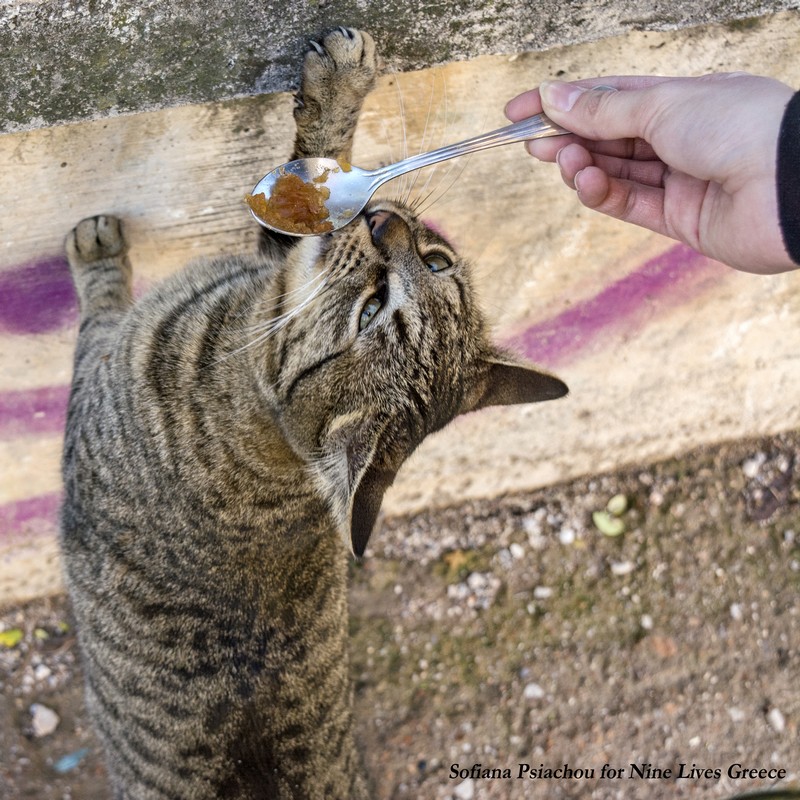
Resources
Greek laws
Police letter
The police have a responsibility to investigate any allegations of cruelty etc of stray or owned animals; this circular was issued by the Chief of Police to all police departments, urging them to respond promptly and efficiently to all cases of animal abuse, download here.
Useful Links
Vet Clinics in Athens
Athens Animal Welfare Groups & Forums
PANHELLENIC ANIMAL WELFARE FEDERATION
FRIENDS OF ANIMALS NEA FILADELPHIA
Animal Welfare Groups outside of Athens
GREEK CATS WELFARE SOCIETY (UK)
ANIMAL ACTION GREECE (formerly known as the Greek Animal Welfare Fund)
Wildlife Charities in Greece
International Animal Welfare Groups
ANIMAL DEFENDERS INTERNATIONAL
Other Useful Cat/Pet links
Useful Links to advertise cats or kittens needing homes
ΦΙΛΟΞΕΝΙΑ -ΥΙΟΘΕΣΙΑ ΑΔΕΣΠΟΤΩΝ ΖΩΩΝ
ΧΑΘΗΚΕ : μόνο για ζώα που χάθηκαν, υποομάδα του Χ.Β.Χ.Φ.Υ
Υιοθετησε Φιλοξενησε Σωσε Βοηθησε Προωθησε Ενα Αδεσποτο!!!
ΖΩΦΟΡΟΣ πολιτισμός-περιβάλλον-ζωοφιλία
Αγγελίες για ζώα – Aggelies gia zoa
“ΤΡ.Α.Φ” (Τράπεζα αλληλεγγύης Φιλόζωων)
Η σελιδούλα για τα ζώα!!! The page for animals!!
Identification of Active Animal Lovers (Αναγνώριση των ενεργών φιλόζωων)
ΑΔΕΣΠΟΤΑ ΓΙΑ ΥΙΟΘΕΣΙΑ – STRAYS FOR ADOPTION
Σωστε τους αδεσποτους φιλους μας
ΑΔΕΣΠΟΤΑ. ΕΧΟΥΝ ΚΑΙ ΑΥΤΑ ΨΥΧΗ !!!
ΑΓΑΠΩ ΤΑ ΖΩΑ ΚΑΙ ΤΑ ΠΡΟΣΤΑΤΕΥΩ!
ΤΙ ..ΚΑΙ ΑΝ ΕΙΜΑΣΤΕ ΑΔΕΣΠΟΤΑΚΙΑ?? ΚΑΙ ΗΜΙΑΙΜΑΚΙΑ??
ΒΡΕΙΤΕ ΣΠΙΤΑΚΙ ΣΕ ΚΑΠΟΙΟ ΖΩΑΚΙ!!!-FIND A HOME TO AN ANIMAL
ΤΑΛΑΙΠΩΡΗΜΕΝΕΣ ΨΥΧΕΣ ΑΔΕΣΠΟΤΕΣ ΨΑΧΝΟΥΝ ΣΠΙΤΑΚΙΑ
ADOPT DON’T BUY ♥ SAVE A PET’S LIFE ♥
Zωάκια Προς υιοθεσία , φιλοξενια ,χαθηκαν-βρεθηκαν
ΑΓΓΕΛΙΕΣ ΓΙΑ ΑΔΕΣΠΟΤΑ/ΧΑΜΕΝΑ ΖΩΑ
ΟΛΟΙ ΟΙ ΕΛΛΗΝΕΣ ΖΩΟΦΙΛΟΙ ΣΕ ΜΙΑ ΣΕΛΙΔΑ
ΑΔΕΣΠΟΤΑ ΓΑΤΑΚΙΑ ΑΘΗΝΑΣ Αγγελίες πολιτών και σωματείων
ΧΑΘΗΚΕ – ΒΡΕΘΗΚΕ – ΧΑΡΙΖΕΤΑΙ – ΥΙΟΘΕΤΩ – ΦΙΛΟΞΕΝΩ : ΣΚΥΛΟ ή ΑΛΛΟ ΖΩO
ΜΗΝ ΑΓΟΡΑΖΕΙΣ ΕΝΑ ΖΩΟ…ΥΙΟΘΕΤΗΣΕ ΤΟ!!!!
ΑΔΕΣΠΟΤΑΚΙΑ | Υιοθεσίες-Φιλοξενίες-Χάθηκαν-Βρέθηκαν
Χαριζονται Σκυλακια – Γατακια ΜΗΝ ΑΓΟΡΑΖΕΤΕ Υιοθετηστε Ενα Αδεσποτο

